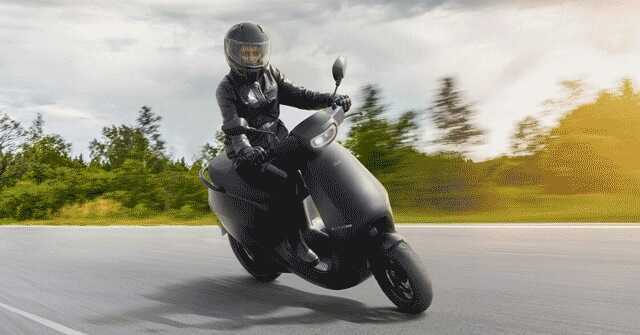
Govt plans to impose fine on e-scooter makers over fire incidents


The Union government is planning to impose monetary penalties on electric scooter makers over “inferior quality” batteries which led to recent fire incidents in the country, an official aware of the matter said.
The development comes after electric vehicle (EV) makers replied to the notices sent by the Union ministry of road transport and highways. About a month back, the ministry had sent notices to the companies seeking explanation as to why they should not be penalised for a spate of fire incidents caused by faulty batteries.
“The government would not take severe action as the sector is a nascent industry and it needs to sustain, but penalty would act as a deterrent for companies compromising on quality,” the official said.

“They have given reply (to the notices), we are taking action. The action cannot be very severe. We have to punish them, but it’s a nascent industry. We have to punish them for failure to comply, at the same time we should not kill them,” said the official, adding that electric two-wheelers are the future of India.
The official further said that a major issue found during the investigation with the batteries was the absence of a venting mechanism which is required to vent out heat in case of overheating.
“Batteries should be connected in series. These people (EV makers) are connecting them parallelly also. Parallel connection will lead to serious problems. Battery management system is useless most of the time. Venting mechanism is absent in almost all and connections are also parallel in most of the batteries,” the person said, while outlining the issues found in the probe by the committee formed by the ministry.

In the ‘series’ arrangement of connecting battery cells, overheating of one cell will not impact the whole battery package while in ‘parallel’ connections overheating of one battery cell can impact the entire battery pack and increase chances of fire.
The government had formed two committees after several battery-powered scooters went up in flames this year. The panel investigating the fire incidents found the electric two-wheeler makers used faulty batteries. The second panel was set up to recommend battery-testing criteria, which has come up with draft revised standards for batteries.
The Centre has also asked the companies to stop selling vehicles with the faulty batteries and discard those batteries, the official said. The launches of few companies have also been stopped as vehicles would only be allowed to hit the market once fitted with conforming battery sets.

The series of fires triggered concerns about the safety of electric vehicles and whether Indian e-scooter makers have rushed their products into the market with adequate quality and safety checks in the local conditions.
The incidents also raised an alarm for the government as it has ambitious plans for the Indian EV sector and has also rolled out sops to boost both production and adoption of EVs in the country.
Last month, Union transport minister Nitin Gadkari told the parliament that the ministry has served notices to CEOs and MDs of two-wheeler electric scooter manufacturers whose scooters have caught fire, and further action would be taken after their replies are received.

On April 21, he had announced that the government would issue quality-centric guidelines for EVs. “If any company is found negligent in their processes, a heavy penalty will be imposed and a recall of all defective vehicles will also be ordered,” he said in a series of tweets.
During the recently-ended monsoon session of parliament, in a written reply to a question on the government’s plans to take action against the concerned EV companies, the minister had said that the Central Motor Vehicles Rules, 1989 contains provisions regarding Non-Compliance with Standards (rule 127A), Suspension Order (rule 127B) and Defective Motor Vehicles and Recall Notice (rule 127C).
“Section 182A of the Motor Vehicle Act 1988 contains provisions regarding punishment for offences relating to construction, maintenance, sale and alteration of motor vehicles and components,” he added.

Following the incidents and government scrutiny, companies also have recalled scooters from the customers. Data provided by the ministry of heavy industries in the parliament shows that Okinawa recalled 3,215 units of vehicles on 16 April, Pure EV has recalled 2,000 units of vehicles on 21 April and Ola Electric has recalled 1,441 vehicles on 23 April.
Queries sent to spokespersons of the ministry of road transport and highways, Ola Electric, and Pure EV remained unanswered till press time. Representatives of Okinawa, however, could not be immediately reached.
